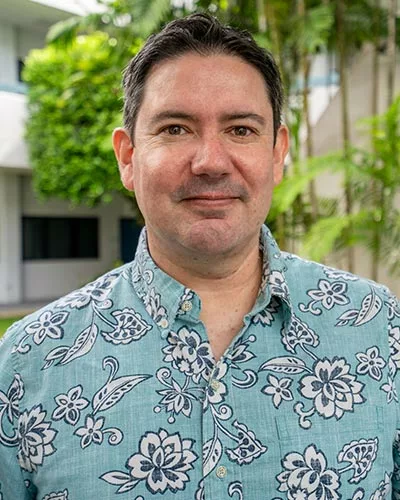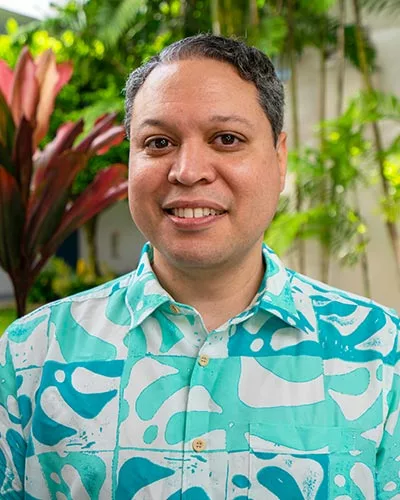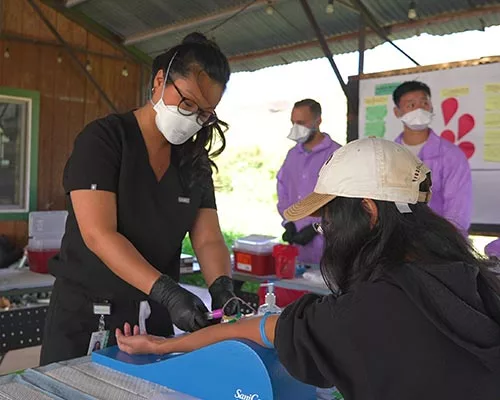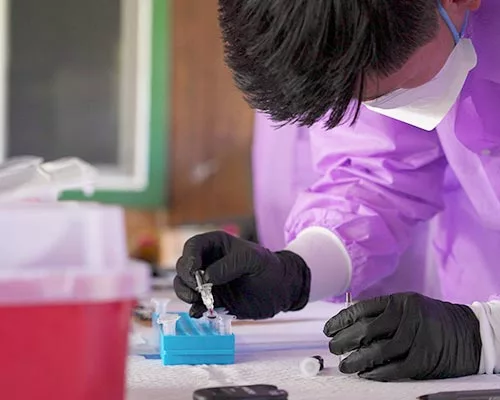An interdisciplinary team of researchers from the University of Hawaiʻi at Mānoa has discovered a potential link between intestinal bacteria and the disproportionately higher rates of certain chronic disease and mental health risks among Native Hawaiians and other Pacific Islanders (NHPIs). The new findings were published in a series of articles in Frontiers, the world’s third most-cited research publisher.
Researchers from UH Mānoa’s John A. Burns School of Medicine (JABSOM) and the University of Hawaiʻi Economic Research Organization (UHERO) in the College of Social Sciences have identified key differences in the numbers and types of intestinal bacteria strains in NHPIs that track with age, Type 2 diabetes status, body mass index and self-esteem. Using these profiles, they identified specific features that may partially regulate the biological processes impacting mental health and metabolic conditions that appear to be related to inflammation, and may help explain the higher incidences of depression and diabetes among NHPIs.
The results indicate that biological findings from other ethnic/race groups may not necessarily be generalizable to the NHPI population, and highlight the importance of increasing representation of NHPIs in social and biomedical research studies.
“Your gut microbiome is affected by what you eat and your environment, and for the first time, we have uncovered differences in Native Hawaiian and Pacific Islanders that contrast with findings from other populations. This may better explain higher rates of chronic health conditions such as diabetes among NHPIs that cannot be explained by social environmental factors alone,” said report co-author Alika Maunakea, associate professor in JABSOM’s Department of Anatomy, Biochemistry and Physiology.
According to the Hawaiʻi Department of Health, NHPIs suffer disproportionately higher rates of, and deaths from, Type 2 diabetes than any other major race/ethnic group in the state. In 2018, the age-adjusted diabetes death rate among NHPIs was more than 2.5 times higher than that of the general state population. Studies have also shown that NHPIs have a higher prevalence of depressed moods, suicidal ideation and attempts, and illicit drug use, but are three times less likely to receive mental health services and treatment compared to non-Hispanic white people. While existing research has described social determinants of mental health in this population, little is known about the biological mechanisms underlying the disproportionately higher rates of low self-esteem related to depression among NHPIs.
“Our findings have significant implications for personalized medicine and improved strategies to enable interventions aimed at preventing chronic disease outcomes, especially among NHPIs. In working with NHPI-led community-based organizations, we are already observing some promising results of such strategies,” added co-author Ruben Juarez, HMSA Endowed Professor in Health Economics in UHERO.
The new research is based on survey findings from a cohort of more than 500 Hawaiʻi residents statewide. The surveys were conducted by UH’s Hawaiʻi Social Epigenomics of Early Diabetes Cohort (HI-SEED) project and designed to identify novel biomarkers predictive of the development of diabetes in order to enable prevention and restore health equity in the islands. Sponsored by the National Institutes of Health, HI-SEED is led by Maunakea with the support of Juarez, and includes researchers from JABSOM, CSS, UHERO and the UH Cancer Center.
Recruitment of the HI-SEED cohort participants is ongoing and is open to qualified Hawaiʻi residents between the ages of 20 and 50. Selected participants are required to complete a comprehensive questionnaire, anthropometrics exam, and contribute blood and stool samples. Learn more about the project and eligibility criteria.



